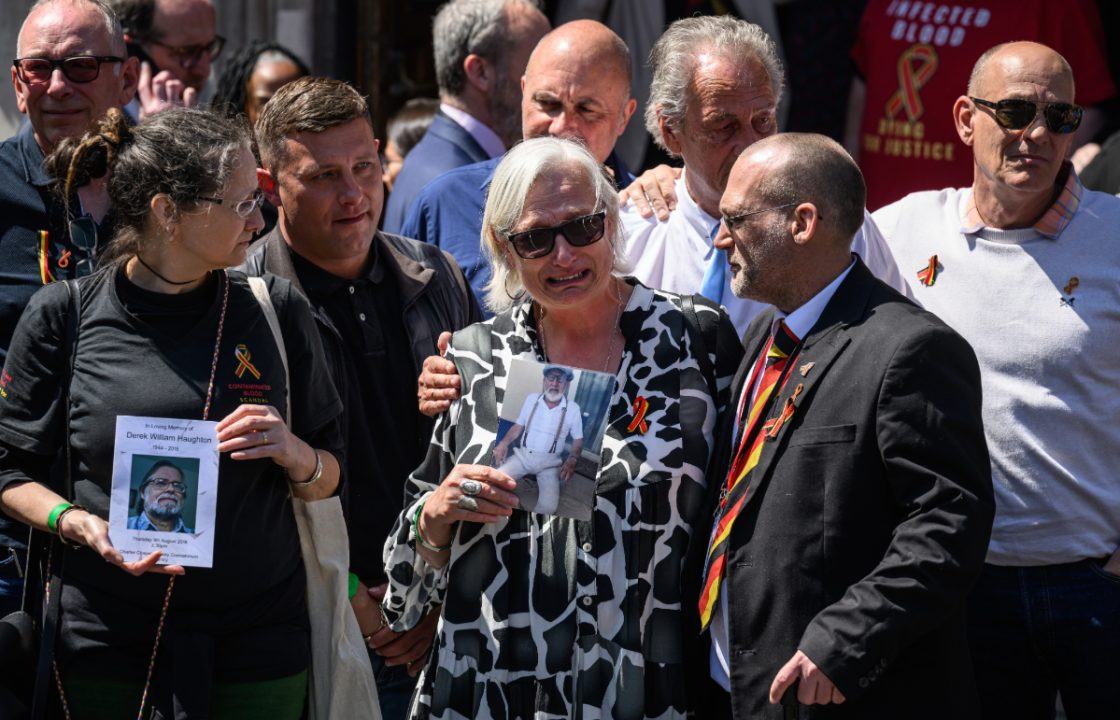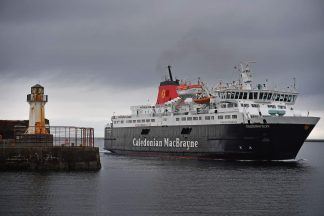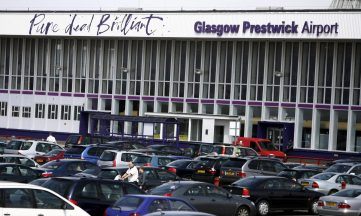Victims affected by the worst treatment disaster in the history of the NHS are waiting to hear details about how much they will be paid in compensation after the Government vowed to pay “whatever it costs”.
Prime Minister Rishi Sunak issued a “wholehearted and unequivocal” apology to the victims of the infected blood scandal, saying that the publication of the report into the disaster was “a day of shame for the British state”.
The Infected Blood Inquiry identified a “catalogue of systemic, collective and individual failures” that amounted to a “calamity”.
More than 30,000 people were infected with deadly viruses between the 1970s and early 1990s as they received blood transfusions or blood products while receiving NHS care.
“At every level, the people and institutions in which we place our trust failed in the most harrowing and devastating way,” the Prime Minister said in a statement to the House of Commons on Monday.
“Layer and layer upon hurt, endured across decades, this is an apology from the state to every single person impacted by the scandal.
“It did not have to be this way. It should never have been this way.
“And on behalf of this and every government stretching back to the 1970s, I am truly sorry.”
He promised to pay “comprehensive compensation” to those affected and infected by the scandal, with details expected to be revealed by Cabinet Office minister John Glen in Parliament on Tuesday.
“Whatever it costs to deliver this scheme, we will pay it,” Sunak said.
Ministers have earmarked around £10bn for a compensation package.
Members of the infected blood community have said that they expect the Government is likely to set out how much compensation will be paid, simplified into a few categories, or tariffs.
This is likely to come under five main categories: injury, social impact, autonomy, care and financial loss.
After a decades-long battle for justice, campaigners welcomed the probe’s recommendations but lamented the fact delays meant many of those responsible would never be held to account.
John McDougall’s son Euan died from Aids in 1994 after receiving contaminated blood during treatment at Yorkhill Children’s Hospital in Glasgow.
The final report was critical of decisions at Yorkhill that saw children with haemophilia receive plasma products sourced from paid donors in the United States, despite these being known to be high-risk.
“The report talks about the utter, utter unacceptability of the treatment of patients at Yorkhill. It can’t get much worse than that really, it’s hard to imagine a description that’s more damning,” said John.
“From what I’ve seen of the report so far today, I feel vindicated.
“Ten, 20 years ago, I would not have thought this day would arrive. To that extent, I’m really pleased that it’s here, that we’ve been able to come here and bring this chapter to its conclusion.
“On the other hand, the people I should be with are not here. My son died in this tragedy, my brother-in-law died in this tragedy and my wife (Kate) died as a consequence of this tragedy, so satisfied to be here but sadness to be alone.
“These were not mistakes, these were egregious, horrendous blunders that lasted year-after-year, decade-after-decade and they were based on a series of conscious decisions that people were making.
Corporate manslaughter charges are “extremely” unlikely, according to lawyers, despite calls from former health secretary and now Greater Manchester Mayor Andy Burnham for a full consideration of prosecutions against Whitehall departments.
Clive Smith, chairman of The Haemophilia Society and also a criminal barrister, said: “One of the aspects that, sadly, the delay has caused is the fact that there are doctors out there who should have been prosecuted for manslaughter, gross negligence manslaughter, doctors who were testing their patients for HIV without consent, not telling them about their infections.
“Those people should have been in the dock for gross negligence manslaughter.
“Sadly, because of the delay, that’s one of the consequences that so many people will not see justice as a result.”
Public inquiries are prohibited from making any recommendations about prosecutions but other countries affected by the scandal have seen ministers brought before the courts.
The 2,527-page report from the inquiry, published on Monday, found that the infected blood scandal “could largely have been avoided” and there was a “pervasive” cover-up to hide the truth.
Deliberate attempts were made to conceal the disaster, including evidence of Whitehall officials destroying documents, the seven-year probe found.
Patients were knowingly exposed to unacceptable risks of infection.
Inquiry chairman Sir Brian Langstaff said “the scale of what happened is horrifying”, with more than 3,000 people dead as a result and survivors battling for decades to uncover the truth.
He said the “level of suffering is difficult to comprehend” and that the harms done to people have been compounded by the reaction of successive governments, the NHS and the medical profession.
Ministers failed to act in order to save face and expense, the inquiry said, with the current Government criticised for failing to act immediately on recommendations around compensation which were made last year.
Sir Brian said the contaminated blood disaster is “still happening” because patients who suffered “life-shattering” infections continue to die every week.
The former high court judge said: “What I have found is that disaster was no accident.
“People put their trust in doctors and the government to keep them safe and that trust was betrayed.
“Then the government compounded that agony by telling them that nothing wrong had been done, that they’d had the best available treatment and that as soon as tests were available they were introduced and both of those statements were untrue.
“That’s why what I’m recommending is that compensation must be paid now and I have made various other recommendations to help make the future of the NHS better and treatment safer.”
Follow STV News on WhatsApp
Scan the QR code on your mobile device for all the latest news from around the country



























